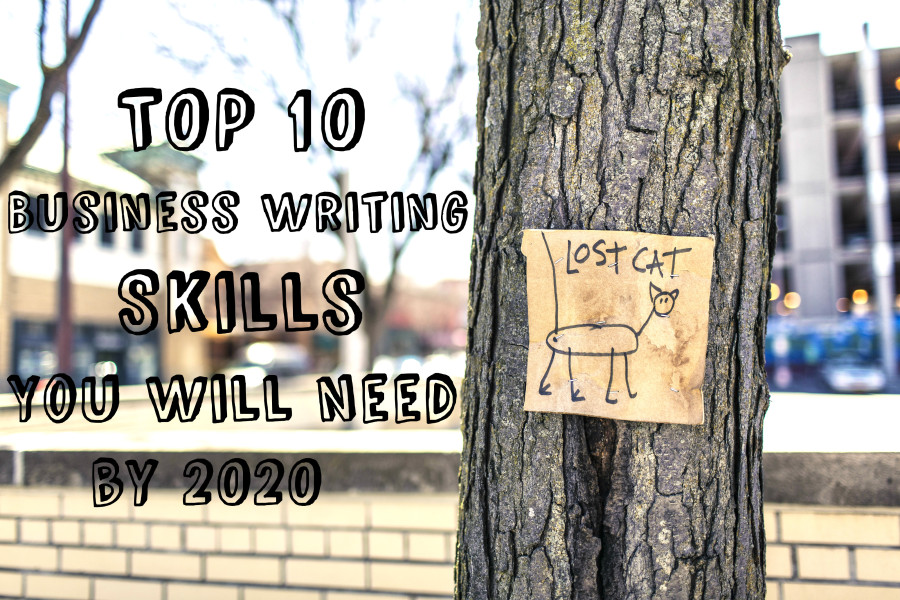
We all wrote essays and papers in high school and college. And we were taught to write in very formal, scholarly ways. Vocabulary and style were important; impeccable grammar was a “must” for a decent grade. Most of us, moreover, have probably composed a resume or two, along with cover letters that made us sound highly skilled and perfect for a position. There will still be a need for scholarly writing, of course, for those who enter career fields in academia or research and who must publish for those venues. For most of us, however, our careers will be elsewhere, and entirely different writing skills will be required.
1. Clear, Concise, and Simple Prose
Long, complicated sentences with sophisticated vocabulary is “out.” No one has the time anymore to re-read content, in order to figure out what has actually been said. You will need to practice writing shorter sentences, containing only one thought. Your vocabulary, unless it must be technical in nature, will need to be at a high school level. Consider these two examples:
A. We are rapidly approaching a point in our organizational growth at which we must consider viable courses of action for expansion into additional global markets, and it will be imperative, in the ensuing months, that everyone begin developing strategies that will achieve this, so that we may evaluate their efficacy at our March 15 meeting.
B. We’re at a point where we have to think about expansion. We need to come up with ways to market our products to consumers in more countries. Over the next few months, everyone should think about options for getting this done. Let’s get together on March 15, and bring your ideas with you.
“B” will be the preferred style – everyone will “get” it during the first “read.” And if this message must be sent by text or email, it will be much easier to compose if you keep it simple.
2. Writing skills will not only include prose
No one will have time to pour through volumes of text and detailed explanations. The use of graphics to impart information will be critical and far more effective. You will need to be able to reduce lots of information and concepts into picture form, and this means some self-study. There already are great tools and apps for creating infographics, and these will only get better over the next few years. Learn to use them!
3. Grammar, spelling and punctuation will not be “thrown out”
While your writing may become simpler, basic writing skills will still need to be in play. You never know. The person you are trying to impress with a sales pitch may be a “stickler” for good grammar and spelling. Fortunately, if you have never been really good at this, the tools, apps and services keep getting better. There won’t be any excuse, except laziness.
4. Prose writing will have to be broken up
One of the effects of so much use of technology is that people’s attention spans are shorter. If you want your stuff read from start to finish, you had better learn how to use headings, sub-headings, and bullet points. This is going to require real thought organization before you ever begin to write, so that your points flow logically. Remember that old outline “routine?” It’s still a pretty good organizer for writing!
5. Writing for Your Audience
This will be more important than ever. You have to know the intellectual and reading levels of the people who will be reading your stuff, and you will have to adjust your style and vocabulary accordingly. Being able to change your style for different audiences will be pretty critical, and it takes real skill.
6. Creativity
People are inundated with so much content these days that they become very fickle. They more creative you can be with what you write, the less fickle your audience will be. You will need to find unique ways to say the same things that others are saying – ways that are really engaging for your reader. This is especially true if you will be marketing products or services on the web, and who won’t be by 2020?
7. Article and Blog Writing
While these venues for grabbing audiences will certainly evolve over the next 5 years, they are here to stay, for this is how company brands are spread and customer loyalty is achieved. Your business blog will have to be chock full of wonderfully entertaining content that educates as well. You will need to use those techniques for people with short attention spans, and, in this case, the reading level should be at about age 13-14. And media?
8. Writing for Social Media
Here is another writing venue that is not going away! By 2020, you can expect many more social media sites that are just as popular as Facebook, LinkedIn, and Pinterest. Individuals who do not have the skill to grab attention with a few short phrases, with a couple of stunning facts, or with a great story will be losers on these platforms.
9. Writing as Video
Just as writing will continue to morph into graphics, it will also evolve into videos. Showing rather than telling will be the new “writing,” and those who are skilled in creating compelling short videos that inform and educate will continue to expand their audiences.
10. Business writing will not be dead
Yes, there will still be a need for reports, strategic plans, employee policy manuals and e-guides; people will still write memorandum (although these will obviously be distributed electronically). But the trend toward simplicity and the use of graphics and videos will continue, and the skilled “writer” will be able to weave text, graphics, and media into coherent pieces that readers/viewers can absorb quickly and completely.
Read more: 3 Levels of Writing and 5 Tools to Deliver Professional Business Writing

